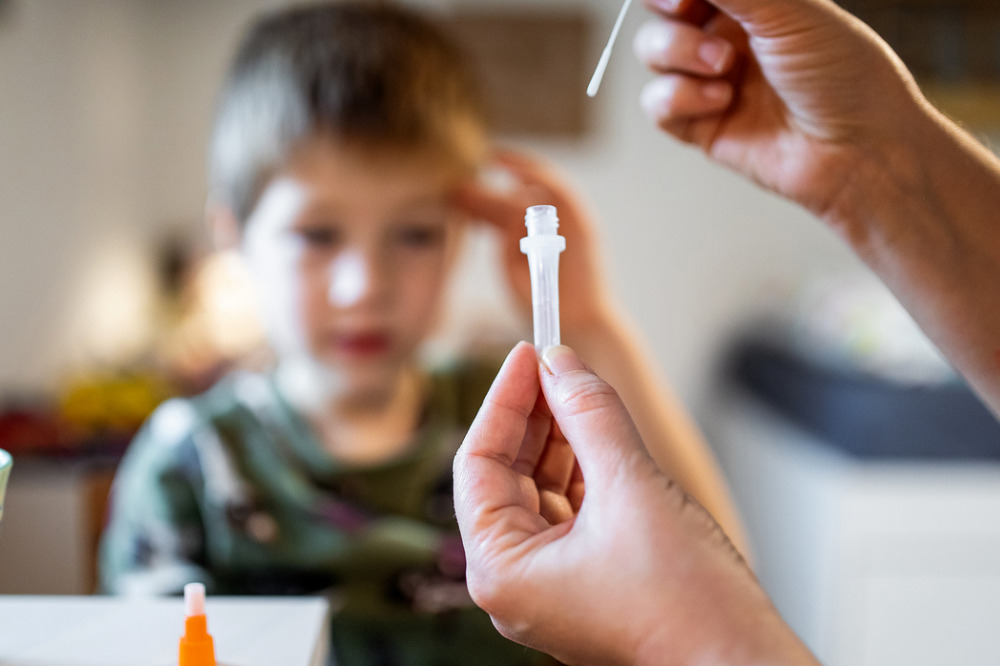
NSW primary schools will receive more than 500,000 Rapid Antigen Home Testing (RAHT) kits to reduce the disruption positive COVID cases have on schools and student learning, the state’s government announced on Friday.
The NSW Government is expanding the use of this method to reduce the time students and staff spend away from school if they are a close contact of a positive case.
The decision follows recent Doherty Institute modelling that shows screening students with rapid antigen testing before school starts works just as well as quarantining an entire class if a student tests positive to the COVID-19 virus.
The method, tabled at the National Cabinet before being outlined in the new Doherty Institute modelling, comes as NSW and Victoria announce plans to regularly screen students for the virus before face-to-face classes begin.
The Institute’s modelling found that the “test to stay” approach resulted on average in just one more infection in primary schools, and six fewer in secondary schools.
How it will work
Under NSW Health advice, close contacts of COVID positive cases can return to school after seven days, provided they receive a negative PCR test result on Day 7 of their exposure date and consistent negative rapid antigen test results from Day 8 until Day 14.
The state-wide rollout of the initiative will focus on public and private primary schools, because those students remain unvaccinated. However, NSW Health and the NSW Government are currently looking into developing a process for unvaccinated high school students.
NSW Education Minister, Sarah Mitchell, said the tests would be an important way to help students and staff return to the classroom earlier in schools with positive cases.
“Using RAHT, our pilot at Albury North Public School has shown that tests are effective in reducing the amount of time close contacts spend learning from home, with 38 students able to return to the classroom after seven days, instead of the standard 14 for unvaccinated close contacts,” Mitchell said.
Albury North Public School principal Paul Smith said there was “significant disruption” for students and their families when they were identified as a primary close contact at school, often meaning 14 days in isolation at home.
“Providing parents with an option to use the rapid antigen testing kits at home, and then sending in the negative tests before the start of the school day, allowed us to reduce this time at home whilst still ensuring the safety and wellbeing of everyone at school.”


